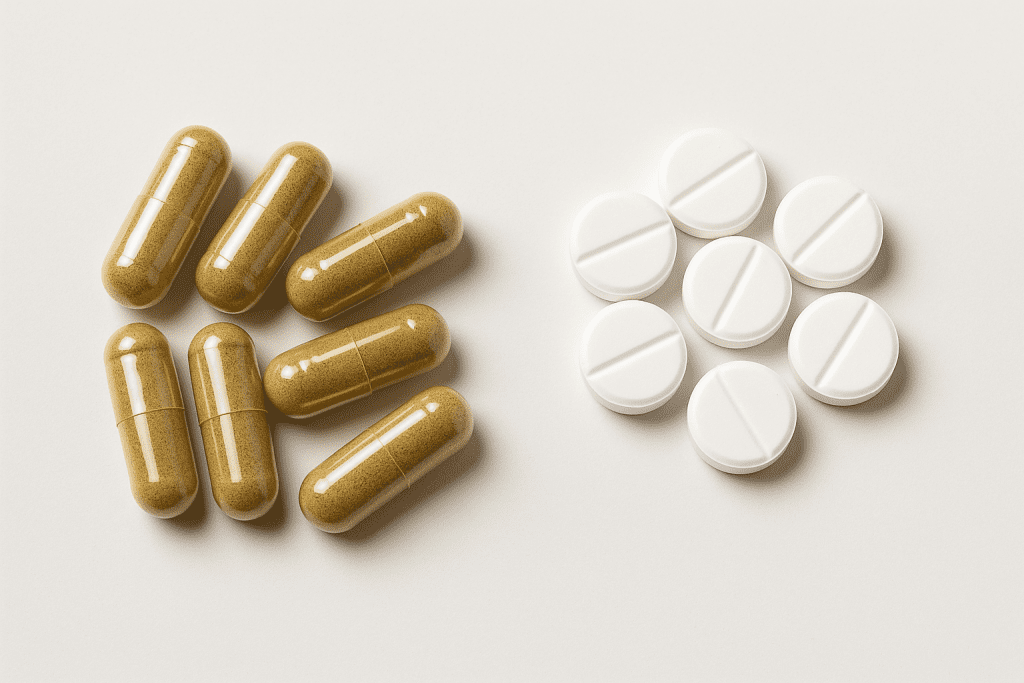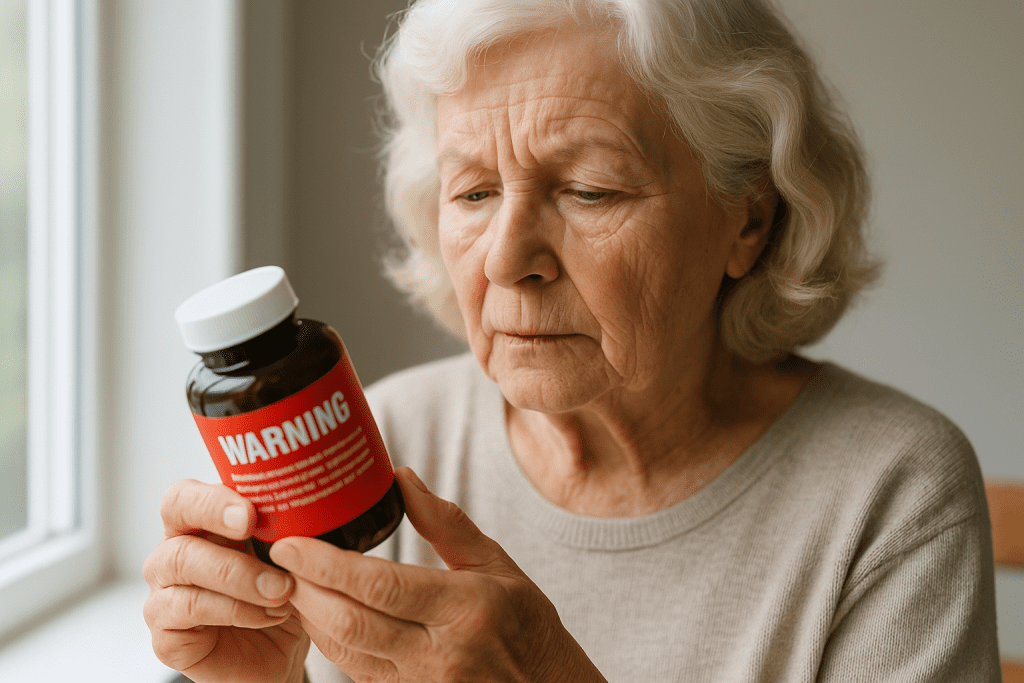
Combining ginkgo biloba, a popular herbal supplement, with aspirin has sparked ongoing debate about safety.
Both substances affect blood clotting, and when taken together, may heighten bleeding risks.
This guide explores the latest evidence on ginkgo aspirin bleeding risk, highlights potential side effects, and offers practical recommendations for safer use.
Quick Summary: Is It Safe to Take Ginkgo with Aspirin?
| Question | Answer |
|---|---|
| Does ginkgo thin the blood? | Yes, it has antiplatelet properties that may reduce blood clotting. |
| Can ginkgo and aspirin cause bleeding? | Yes, multiple case reports link the combination to serious bleeding events. |
| Is there solid clinical evidence of risk? | Some studies show minimal risk, but observational data suggest caution. |
| Should you stop ginkgo before surgery? | Yes, at least 2 weeks before to reduce bleeding risk. |
| Who should avoid this combo? | People with bleeding disorders, vascular eye conditions, or on multiple blood thinners. |
Understanding Ginkgo’s Effect on Blood Clotting
Ginkgo biloba is commonly taken to support memory, cognitive function, and circulation. But it also functions as a herbal supplement and blood thinner, largely due to its active compound, ginkgolide B, which inhibits platelet-activating factor. This mechanism reduces the blood’s ability to clot, mimicking the action of aspirin and other antiplatelet drugs.
According to a Safety Review of Ginkgo Biloba by ScienceBasedHealth, this effect is well-documented. A systematic review cataloged at least 15 case reports of spontaneous bleeding associated with ginkgo use, including:
- Intracranial hemorrhages
- Post-operative bleeding
- Ocular (eye) bleeding
In some cases, elevated bleeding time returned to normal only after stopping ginkgo. These documented incidents reinforce the importance of caution, especially when paired with aspirin.
What Happens When You Mix Ginkgo and Aspirin?

Evidence Suggesting Increased Bleeding Risk
A 2025 study from Hai Phong International Hospital evaluated over 2,600 ginkgo prescriptions and found drug interactions in 12.94% of them. Key findings included:
- Increased odds of bleeding events (OR: 1.08)
- Higher rates of abnormal coagulation (OR: 1.49)
- Frequent interactions with aspirin, one of the most common co-administered drugs
Additionally, one-third of published hemorrhage cases involved patients on other blood thinners, notably aspirin. As highlighted in Drugs.com’s interaction checker, combining these substances raises safety flags in many medical databases.
Evidence Suggesting Limited Risk
Not all research points to danger. A controlled clinical trial on PubMed involving older adults with cardiovascular risks found that a high-dose ginkgo-aspirin combination didn’t significantly alter bleeding markers over four weeks. Similarly, a systematic review concluded that controlled trials offer scant proof of a dangerous interaction.
However, isolated clinical studies do not erase real-world bleeding cases. This discrepancy is why many experts recommend erring on the side of caution.
A Real-World Example
In one case, a woman developed a severe vitreous hemorrhage while taking ginkgo for five months. Though she wasn’t on aspirin, the incident illustrates ginkgo’s potential to cause spontaneous bleeding, especially in people with underlying vascular conditions such as macular degeneration.
Ginkgo Side Effects to Watch For
Beyond bleeding, other ginkgo side effects may include:
- Gastrointestinal discomfort
- Headaches or dizziness
- Allergic skin reactions
- Increased heart rate
Serious side effects like spontaneous internal bleeding, while rare, are well-documented and must not be dismissed. As with saw palmetto and blood thinner interactions, not all herbal supplements are benign, especially when combined with anticoagulant medications.
Best Practices: Taking Ginkgo Safely
For individuals taking aspirin or other antiplatelet medications, the following strategies can help minimize risk:
1. Talk to Your Doctor First
Always disclose herbal supplement use to your healthcare provider. This is especially critical if you’re managing conditions like cardiovascular disease, diabetes, or undergoing surgery.
2. Stop Ginkgo Before Surgery
Pre-surgical protocols usually recommend discontinuing ginkgo at least 14 days before surgery. Some guidelines suggest stopping it 36 hours to 2 weeks prior, depending on bleeding risk.
3. Monitor for Warning Signs
Seek medical advice if you experience:
- Unusual bruising
- Prolonged bleeding from cuts
- Blood in urine or stool
- Sudden vision changes or headaches
4. Consider Safer Alternatives
Some users turn to ginkgo for brain health or circulation. In such cases, discuss better-studied or lower-risk alternatives with your physician. Options like omega-3 fatty acids or CoQ10 may offer cognitive benefits with less concern over clotting.
5. Choose Quality Supplements
Stick to standardized extracts like EGb 761, which have been clinically tested and monitored for quality. Avoid unregulated products with unknown potency or added compounds.

High-Risk Groups: Who Should Avoid This Combo?
Certain populations should be particularly cautious or avoid combining aspirin and ginkgo altogether:
- People with known bleeding disorders
- Patients with a history of hemorrhagic stroke
- Individuals with retinal or ocular vascular conditions
- Older adults on multiple medications affecting clotting (NSAIDs, anticoagulants, SSRIs)
Those taking medications like ACE inhibitors or potassium supplements should also review potential risks, as seen in our guide on potassium supplements and ACE inhibitor dangers.
Conclusion: Proceed with Caution and Clinical Insight
While the ginkgo aspirin bleeding risk remains a topic of debate, the evidence is compelling enough to justify caution. Case reports and observational data suggest a real, if infrequent, danger—particularly for high-risk individuals or those on multiple anticoagulants.
To reduce your risk:
- Talk to your doctor
- Avoid ginkgo before surgery
- Monitor for symptoms
- Choose quality supplements
For further guidance, explore our evidence-based resources on supplement interactions and medication safety at UsefulVitamins.com.


